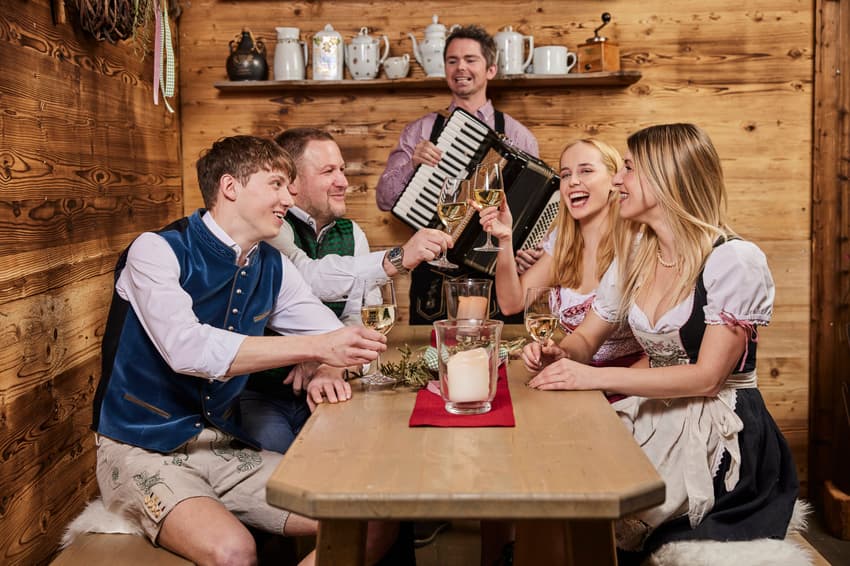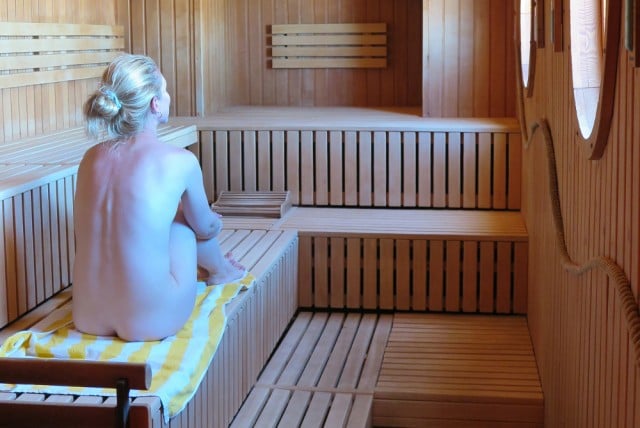10 things you only know about Austria when you move here

Austria is more than Lederhosen, skiing and classical music. Here are some aspects of Austrian life that you might not expect to find before moving to the country.
School and work starts early
In many countries around the world, work typically starts at around 9am and school starts between 8am and 9am.
But in Austria, people like to make the most of the early morning, so work usually starts at 8am, or even earlier, depending on the industry.
Also, while most primary schools start at 8am, they can legally start some classes at 7am, which means some families have very early days.
For people that prefer to sleep in or simply don’t feel productive until later in the day, starting work or school at 7am or 8am can be a shock to the system.
FOR MEMBERS: 12 ways to cause offence in Austria as a foreigner (and how to avoid it)
Employees get 14 salary payments each year
A huge benefit of being employed in Austria is receiving 14 salary payments each year, with an extra payment at the end of June and November.
Even better, these extra payments are only taxed at 6 percent, which makes them a very welcome bonus for employees.
READ ALSO: Tax cuts and bonus payments: Austria’s financial measures that will benefit people this year
Corruption is rife
Austria has seen several political scandals play out in recent years and the country has now slipped down in Transparency International’s “Corruption Perceptions Index” to 22nd place. In 2022, Austria was ranked 13th.
According to Transparency International, Austria lost ground on the index after a period of political turbulence and what it called "rule of law challenges", a reference to the country's seemingly lenient (or non-existent) laws to prevent and fight corruption.
One key instance of "political turbulence" is the 2019 infamous Ibizagate video which brought down the ÖVP-FPÖ (centre-right and far-right) ruling coalition. You can read more about the scandal here.
The video is not the first instance of corruption in Austria, but it does highlight some of the country's "most popular" forms of corruption: nepotism, the unethical relationship between politics and tabloid media, and bribery, particularly using the foundations known as Verein.
READ MORE: What are the biggest threats facing Austria this year?
Customer service is not always polite
Anyone that has spent a decent amount of time in Austria will know that waiters and waitresses can be grumpy. But for newbies to the country, it can be a shock.
Don’t be surprised if waiters act like they’re doing you a favour by serving you. Or staff members regularly appear stressed and overworked – even when it’s not very busy.
Thankfully, it’s all part of Austria’s unique charm and it’s not usually personal. But don’t expect American or Canadian-style friendly service in Austria.

(L-R) Austrian Chancellor Sebastian Kurz, Tourism Minister Elisabeth Koestinger, Vice-Chancellor Werner Kogler and the secretary for culture Andrea Mayer have lunch in the garden of Schweizerhouse (Swiss house) restaurant at Prater amusement park in Vienna, Austria on May 19, 2021.(Photo by JOE KLAMAR / AFP)
Lunchtime is important
Austria is known for having a healthy work-life balance and taking a proper lunch break is a big part of it.
This is why most people clock off at 12pm to sit down with colleagues for lunch, and why you will rarely see someone eating a sorry-looking sandwich at their desk.
Lunch is also often the most important meal of the day, with many people enjoying a warm cooked meal, followed by a lighter dinner in the evening.
READ ALSO: Eight Austrian food mistakes you only make once
Shops close on a Sunday
Sunday is an official day of rest in Austria so most businesses are closed, with the exception of essential services like petrol stations and hospitality.
This means you won’t be able to wander down to the supermarket on a Sunday to pick up some bread and milk. Or go browsing around the high street stores.
For many international residents, this can be frustrating and boring. But there are plenty of other things to do, like having a long brunch in a cafe or exploring nature in Austria’s more rural areas.
Cash is still king
Card payments have grown in popularity in Austria in recent years (especially since the start of the pandemic), but cash is still the payment of choice for many individuals and businesses.
This is so ingrained in society that you might even get a grumpy roll of the eyes when trying to pay with cash in some places. And the attitude can be summed up with the saying “Nur Bares ist Wahres” (only cash is true).
There are three reasons for the enduring love of cash in Austria – freedom, anonymity and control. Austrians like to have the freedom of not relying on a bank, the anonymity to spend money on whatever they like and control over spending.
READ ALSO: Falco to Schwarzenegger: Six Austrian cultural icons that you need to know
For people from places like the UK, Ireland and most of Scandinavia where cards/digital is the payment of choice, this love of cash doesn't really make sense. But the best way to deal with it is to simply do as the locals do and make regular trips to an ATM.

Saunas are almost always naked spaces
Austria has long, cold winters, so spending time in the sauna is a big part of the culture – especially in the mountains.
But a word of warning: Austrians like their sauna to be a clothes-free environment (including towels).
This can come as a shock to people from other parts of the world where wearing a bikini or board shorts in a sauna is normal and going naked in public is only for naturalists.
So to avoid getting some funny looks, or even a telling-off by a fellow sauna user, be sure to strip off before entering your nearest Saunawelt (sauna world).
FOR MEMBERS: Aberglaube: Eight strange Austrian superstitions foreigners should know about
Jaywalking is illegal
Jaywalking (crossing the road on a red light) is not acceptable in Austria and you will often see people waiting on the side of an empty road until the light turns green.
You can even be fined if caught jaywalking by the police. It’s that serious.
This can seem extreme to people from countries where jaywalking is common practice. But in Austria, these rules are followed by almost everyone.
So get used to waiting for the little green man before crossing the road.
Austrians don’t really speak (high) German
Austria is officially a German-speaking country, but not everyone speaks Hochdeutsch (high German) in their day-to-day lives.
Instead, most regions have their own dialect, although there is no exact number for how many different dialects exist in Austria.
READ ALSO: The seven stages of learning German every foreigner goes through
For international residents, this makes learning the language even harder because even though high German is taught in language schools across the country, many locals don’t speak it.
The best approach is to learn a few dialect words in the area where you live and use it when speaking to locals. You might get laughed at if you get it wrong, but most of the time Austrians will appreciate the effort.
Comments
See Also
School and work starts early
In many countries around the world, work typically starts at around 9am and school starts between 8am and 9am.
But in Austria, people like to make the most of the early morning, so work usually starts at 8am, or even earlier, depending on the industry.
Also, while most primary schools start at 8am, they can legally start some classes at 7am, which means some families have very early days.
For people that prefer to sleep in or simply don’t feel productive until later in the day, starting work or school at 7am or 8am can be a shock to the system.
FOR MEMBERS: 12 ways to cause offence in Austria as a foreigner (and how to avoid it)
Employees get 14 salary payments each year
A huge benefit of being employed in Austria is receiving 14 salary payments each year, with an extra payment at the end of June and November.
Even better, these extra payments are only taxed at 6 percent, which makes them a very welcome bonus for employees.
READ ALSO: Tax cuts and bonus payments: Austria’s financial measures that will benefit people this year
Corruption is rife
Austria has seen several political scandals play out in recent years and the country has now slipped down in Transparency International’s “Corruption Perceptions Index” to 22nd place. In 2022, Austria was ranked 13th.
According to Transparency International, Austria lost ground on the index after a period of political turbulence and what it called "rule of law challenges", a reference to the country's seemingly lenient (or non-existent) laws to prevent and fight corruption.
One key instance of "political turbulence" is the 2019 infamous Ibizagate video which brought down the ÖVP-FPÖ (centre-right and far-right) ruling coalition. You can read more about the scandal here.
The video is not the first instance of corruption in Austria, but it does highlight some of the country's "most popular" forms of corruption: nepotism, the unethical relationship between politics and tabloid media, and bribery, particularly using the foundations known as Verein.
READ MORE: What are the biggest threats facing Austria this year?
Customer service is not always polite
Anyone that has spent a decent amount of time in Austria will know that waiters and waitresses can be grumpy. But for newbies to the country, it can be a shock.
Don’t be surprised if waiters act like they’re doing you a favour by serving you. Or staff members regularly appear stressed and overworked – even when it’s not very busy.
Thankfully, it’s all part of Austria’s unique charm and it’s not usually personal. But don’t expect American or Canadian-style friendly service in Austria.

Lunchtime is important
Austria is known for having a healthy work-life balance and taking a proper lunch break is a big part of it.
This is why most people clock off at 12pm to sit down with colleagues for lunch, and why you will rarely see someone eating a sorry-looking sandwich at their desk.
Lunch is also often the most important meal of the day, with many people enjoying a warm cooked meal, followed by a lighter dinner in the evening.
READ ALSO: Eight Austrian food mistakes you only make once
Shops close on a Sunday
Sunday is an official day of rest in Austria so most businesses are closed, with the exception of essential services like petrol stations and hospitality.
This means you won’t be able to wander down to the supermarket on a Sunday to pick up some bread and milk. Or go browsing around the high street stores.
For many international residents, this can be frustrating and boring. But there are plenty of other things to do, like having a long brunch in a cafe or exploring nature in Austria’s more rural areas.
Cash is still king
Card payments have grown in popularity in Austria in recent years (especially since the start of the pandemic), but cash is still the payment of choice for many individuals and businesses.
This is so ingrained in society that you might even get a grumpy roll of the eyes when trying to pay with cash in some places. And the attitude can be summed up with the saying “Nur Bares ist Wahres” (only cash is true).
There are three reasons for the enduring love of cash in Austria – freedom, anonymity and control. Austrians like to have the freedom of not relying on a bank, the anonymity to spend money on whatever they like and control over spending.
READ ALSO: Falco to Schwarzenegger: Six Austrian cultural icons that you need to know
For people from places like the UK, Ireland and most of Scandinavia where cards/digital is the payment of choice, this love of cash doesn't really make sense. But the best way to deal with it is to simply do as the locals do and make regular trips to an ATM.

Saunas are almost always naked spaces
Austria has long, cold winters, so spending time in the sauna is a big part of the culture – especially in the mountains.
But a word of warning: Austrians like their sauna to be a clothes-free environment (including towels).
This can come as a shock to people from other parts of the world where wearing a bikini or board shorts in a sauna is normal and going naked in public is only for naturalists.
So to avoid getting some funny looks, or even a telling-off by a fellow sauna user, be sure to strip off before entering your nearest Saunawelt (sauna world).
FOR MEMBERS: Aberglaube: Eight strange Austrian superstitions foreigners should know about
Jaywalking is illegal
Jaywalking (crossing the road on a red light) is not acceptable in Austria and you will often see people waiting on the side of an empty road until the light turns green.
You can even be fined if caught jaywalking by the police. It’s that serious.
This can seem extreme to people from countries where jaywalking is common practice. But in Austria, these rules are followed by almost everyone.
So get used to waiting for the little green man before crossing the road.
Austrians don’t really speak (high) German
Austria is officially a German-speaking country, but not everyone speaks Hochdeutsch (high German) in their day-to-day lives.
Instead, most regions have their own dialect, although there is no exact number for how many different dialects exist in Austria.
READ ALSO: The seven stages of learning German every foreigner goes through
For international residents, this makes learning the language even harder because even though high German is taught in language schools across the country, many locals don’t speak it.
The best approach is to learn a few dialect words in the area where you live and use it when speaking to locals. You might get laughed at if you get it wrong, but most of the time Austrians will appreciate the effort.
Join the conversation in our comments section below. Share your own views and experience and if you have a question or suggestion for our journalists then email us at [email protected].
Please keep comments civil, constructive and on topic – and make sure to read our terms of use before getting involved.
Please log in here to leave a comment.